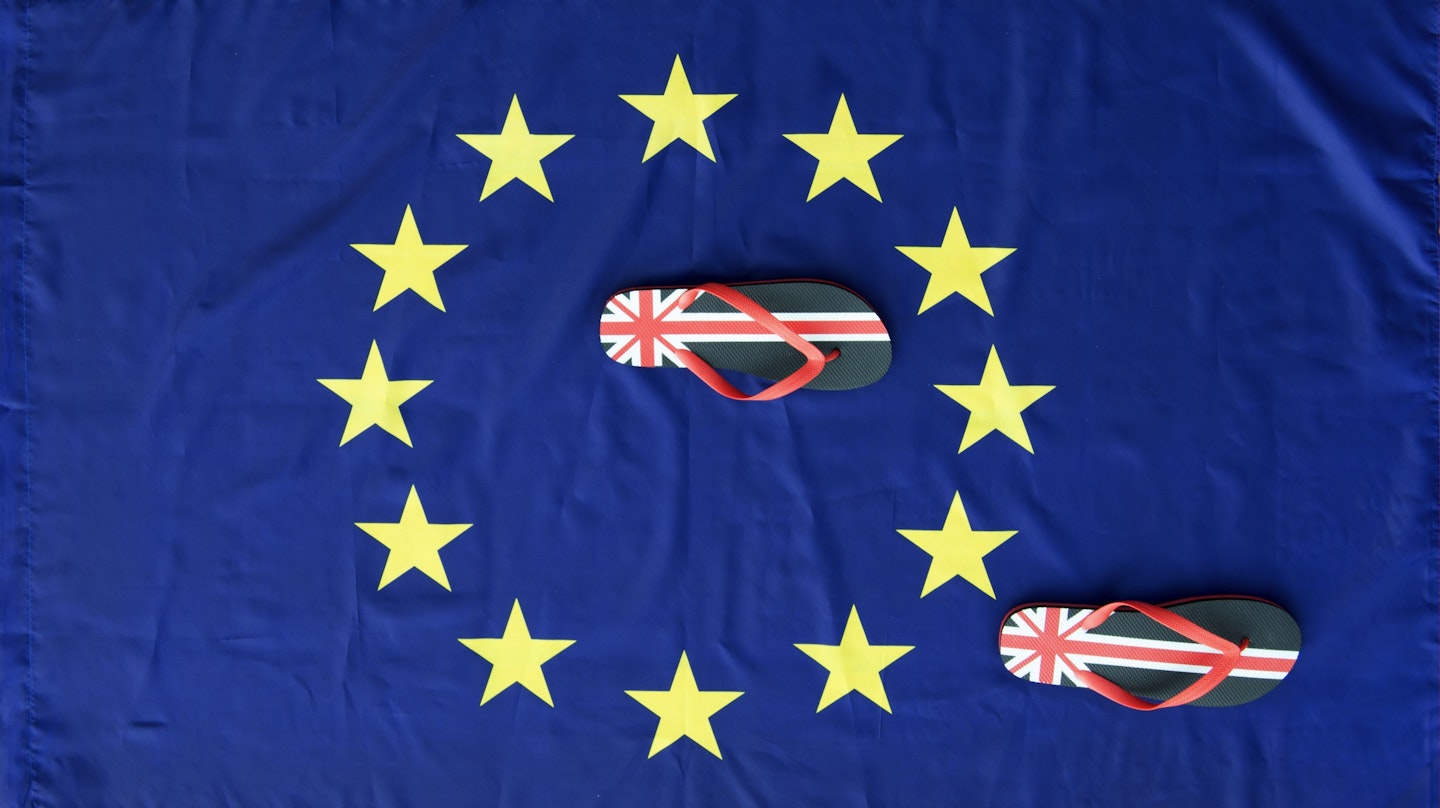Polls show a third of people are considering tactical voting at the general election on June 8.
So, what exactly is tactical voting, how is it impacted by Brexit - and what are the pros and cons of using it?
With the help of a panel of political experts, we dissect the hot topic of June’s snap vote.
Tactical voting - a definition
-
"Voting for a candidate you don’t necessarily support to make sure you get a result that is more palatable to you. Choosing the least worst option, rather than your first choice" - Dr. Louise Thompson, politics lecturer at the University of Surrey.
-
"Voting to prevent the person you least want to win, rather than for the person you ideally want to win" - Michael Taylor, former Labour candidate and external affairs advisor at Manchester Metropolitan University.
Brexit

While nothing will stop us from leaving the EU, this election will help frame how we move forward with Brexit.
Theresa May and her government have indicated they will pursue a so-called "hard" Brexit, which would see the UK leave the single market to regain control of its borders.
In contrast, “soft” Brexit tends to mean that Britain will continue its membership of the EU single market in some form, in return for a degree of free movement (of goods, trades and people) between the EU and the UK.
Pro: voting tactically may help to block a hard Brexit
If you're one of the 48% who voted to remain in the European Union in last year's Referendum, voting tactically may help to prevent or at least alleviate the impact of the Tories' hard Brexit vision.
Organisations such as Open Britain are actively targeting marginal seats with tactical voting campaigns, to block the Tories' "destructive" hard Brexit proposal.
If people vote tactically against hard Brexit candidates - and avoid splitting the opposition vote between Labour, Lib Dems or other parties in specific seats - the argument goes that there will be greater opposition to the Tories, and more chance of derailing their hard-line approach.
Gina Miller, the pro-EU campaigner who won a court challenge over article 50, has launched a tactical voting initiative called Best For Britain that supports election candidates opposed to hard Brexit.
"I believe that there will be a Tory government on June 9," she says. "But the size of the majority and choosing candidates with integrity, conviction and conscience are things that your vote can affect.
"If tactical voting is successful in electing MPs with strong principles who are willing to hold the government to account, hard or extreme Brexit has more chance of being averted."
"The 48 percenters of Remain may be geared towards tactical voting," agrees Dr. Kathryn Simpson, lecturer in politics and public services at Manchester Metropolitan University.
She adds that if the 18 to 24-year-old group - who are largely opposed to Brexit - come out to vote, this may help to sway the success of tactical voting.
Con: Brexit doesn't divide along party lines
Tactical voting on Brexit is made more complicated by the fact that the approach to Brexit doesn't divide neatly down party lines. You have soft Brexiteers among the Tories and Leave advocates in Labour.
Jeremy Corbyn, says Dr. Simpson, has been "very coy" about his feelings on Brexit, and he did vote to leave Europe in 1975.
Both the Green party and Lib Dem figures have been open to the concept of anti-Brexit tactical voting, as part of a strategy to fight back against a Conservative landslide.
But they can't orchestrate it alone.
Dr. Thompson advises those who want to vote tactically against a hard Brexit to research the views of their local MP, rather than choosing according to the party.
Meanwhile, Dr. Shola Mos-Shogbamimu, founder of the Women in Leadership publication, warns against “playing games” with a tactical vote on Brexit.
"In these unprecedented political times, you need to make an informed decision in exercising your vote for the political party with the best strategy for Brexit because we can't hold the future of the country to ransom with poor decisions," she says.
A progressive alliance

Tactical voting is helped if opposition candidates decide not to stand against each when battling the incumbent candidate, so as not to split the vote.
Pro: Tactical voting can be effective with the weight of the opposition behind it
Dr. Simpson says this kind of agreement between the Lib Dems and Labours may have contributed to Tony Blair's victory in 1997, ending 18 years of Conservative party rule.
There's evidence of a move towards a left alliance this time around, too.
Some Green and Lib Dem politicians have called for an electoral pact or progressive alliance. Blair himself has thrown himself behind the idea of campaigning across party lines, saying "we desperately need representatives who will at least keep an open mind".
Con: the opposition is too divided
The concept of a progressive alliance doesn't have much weight without Labour on-board; and Jeremy Coryn has ruled it out.
"To make way for other candidates is easier for smaller parties, when campaigns are expensive to run and they can’t win every seat," says Stuart Thomson, a political blogger and head of public affairs at law firm Bircham Dyson Bell. "But for national parties, to pull out of the race kind of undermines their reason for existence."
"There’s disarray in the opposition," says Dr. Simpson. "Corbyn won’t support a progressive alliance, even after taking a drubbing at the local elections.
"The Tories aren’t very strong, it’s just the opposition is very weak. The opposition are giving very mixed messages to a fatigued electorate, which makes tactical voting more problematic."
Helen Lewis, deputy editor of the New Statesman, is sceptical about the prospect of a progressive alliance to support tactical voting.
"The opposition parties too different," she says. "Lib Dem is Diet Coke to Labour’s full-fat."
"It's very difficult to mobilise tactical voting, especially with fragmented opposition and in such a short time frame," says Simpson.
First Past The Post and marginal seats

Our First Past The Post (FPTP) binary electoral system makes tactical voting problematic. But a fragmented political landscape and the emergence of nation parties means it is more prevalent in Britain than it once was.
** Pro: tactical voting is the only way of unseating an incumbent **
If you're voting in opposition to a safe seat candidate, it could be argued that you should vote tactically - since you have nothing to lose.
Getting rid of an incumbent is an uphill struggle. In theory, voting tactically and putting your strength behind one opposition candidate, rather than splitting it, is the best way to combat an incumbent - however strong their majority.
"In FPTP, you don’t get a prize for second place,” says Dr. Thompson. “People who feel like their vote doesn’t count in a safe constituency may as well vote tactically.”
"If you're voting in opposition to a safe seat, you may see it as a wasted vote in any case – in which case, why not vote tactically?" says Dr. Simpson.
Con: tactical voting loses its potency in a safe seat, FPTP system
Equally, it’s a fact that tactical voting is most effective when it targets marginal seats, such as these key battlegrounds in June's snap election.
As Thomson explains: "It's not effective in many constituencies, where seats are safe and the chances of unseating the incumbent are zero."
Dr. Simpson says tactical voters may lose out twice in a safe seat; not only because they don't win, but also because they may feel like they scuppered their vote on a candidate they didn't truly believe in.
Our FPTP system also makes it more difficult to vote tactically.
"It you have a single directional vote, it is much easier to use it tactically," says Taylor.
The logistics of organising tactical voting

It takes a lot of organisation, people and money to unseat a candidate via tactical voting.
Pro: tactical voting can be effective on a local level
Forget Brexit for a moment. "Tactical voting is more potent and effective when it involves emotive local issues," says Thomson.
He uses the example of independent candidate Richard Taylor, who smashed his way to victory in Worcestershire in 2001, after a campaign to save services at Kidderminster general hospital.
"This kind of issue is personal, and already in the psyche of the people voting – you can easily say, 'Use your vote to keep out this, or stop that,'" says Thomson.
Campaigning on a local level also makes it easier to mobilise tactical voters via donations, advertising and door-to-door canvassing.
Con: tactical voting is difficult to orchestrate
To bring about a win via tactical voting on national issues requires a huge amount of effort and coordination - especially in a situation where the opposition is so divided.
"In principle, tactical voting is a good idea but it's hard to engineer in reality," says Thomson.
This kind of strategy demands a coordinated effort to rally people, and drum up the numbers needed to force through change. The fact that this is a snap election, with a squeezed time frame to mobilise campaigns, makes things even more tricky.
The moral question

Commentators are divided as to whether tactical voting is really “a good thing” or not.
Pro: voting tactically represents a vote for the greater good
Those in favour of tactical voting says it's about putting aside your own political preferences to act on an issue that you believe serves the greater public interest.
Of course, how this takes shape depends on your interpretation of the greater good.
UKIP voters turning to the Conservatives to ensure a hard Brexit could be an example of it - as could Remain voters pooling their strength against hard Brexit candidates.
“Although there is some negativity around tactical voting, Brexit will blight. And tactical voting has an increased chance of succeeding in these circumstances," says Miller, of the Best for Britain campaign.
"We are encouraging people to vote for candidates who will put principles above politics, and back all options on the table in terms of a vote on the final Brexit deal - not a binary deal or no deal."
Con: tactical voting is disingenuous
Some people believe tactical voting is deceptive and plays the system.
"If you go for tactical voting, you put your money on the consensus candidate," says Dr. Thompson. "But they might not be the best MP for the area - as you’re going for your least worst, rather than your best, option.
"It turns the whole system into a game. You're not looking at policies and thinking, 'which is closest to my own beliefs?'"
"Tactical voting is the ultimate dishonest act," says Taylor. "It’s shrugging your shoulders. A tactical vote is based on false promises and expectations rather than evidence base."
"Tactical voting is not addressing the real issues that face us," says Dr. Mos-Shogbamimu.
"You are not exercising your vote in the right way. If you vote for someone you don’t believe in to keep someone else out, you only have yourself to blame when you don't like the result."
A few final thoughts...

Tactical voting can be a useful tool when used wisely in the right circumstances and with backing from a strong, organised base.
Even in a safe constituency, as an opposition voter, you may feel like you have nothing to lose by going tactical.
But do remember to envisage how it may play out if you decide to vote tactically.
"Have your eyes open to what tactical voting might mean," says Lewis.
"Without sounding over-dramatic, you have to live with your decision. Lots of people voted Lib Dem in 2010 thinking that if they went into a coalition with anyone, it would be Labour. And then they felt let down by the Lib-Con partnership."
"If you end up being successful with your tactical vote to get rid of incumbent, you may well end up with an independent or small party opposition candidate," says Thomson. "You have to think, can that one MP really affect change? It’s tricky without the weight of party machinery behind them in Westminster."
"Tactical voting doesn’t consider wider reasons for voting for a party," says Taylor. "For example, in the case of a hung parliament where every vote for a particular party would count."
Use your vote wisely, kids. You heard it here first.
You! The Election Jury
Fancy grilling all the major players? We are taking a select band of readers on the campaign trail. To join our Election Jury, email election@graziamagazine.co.uk with a mini bio, your burning question on the vote and where you live.
Read More: The US Election Was Actually A Milestone For Women In Politics
Read More: Could These Challengers Topple Theresa May's Election Tactics?
